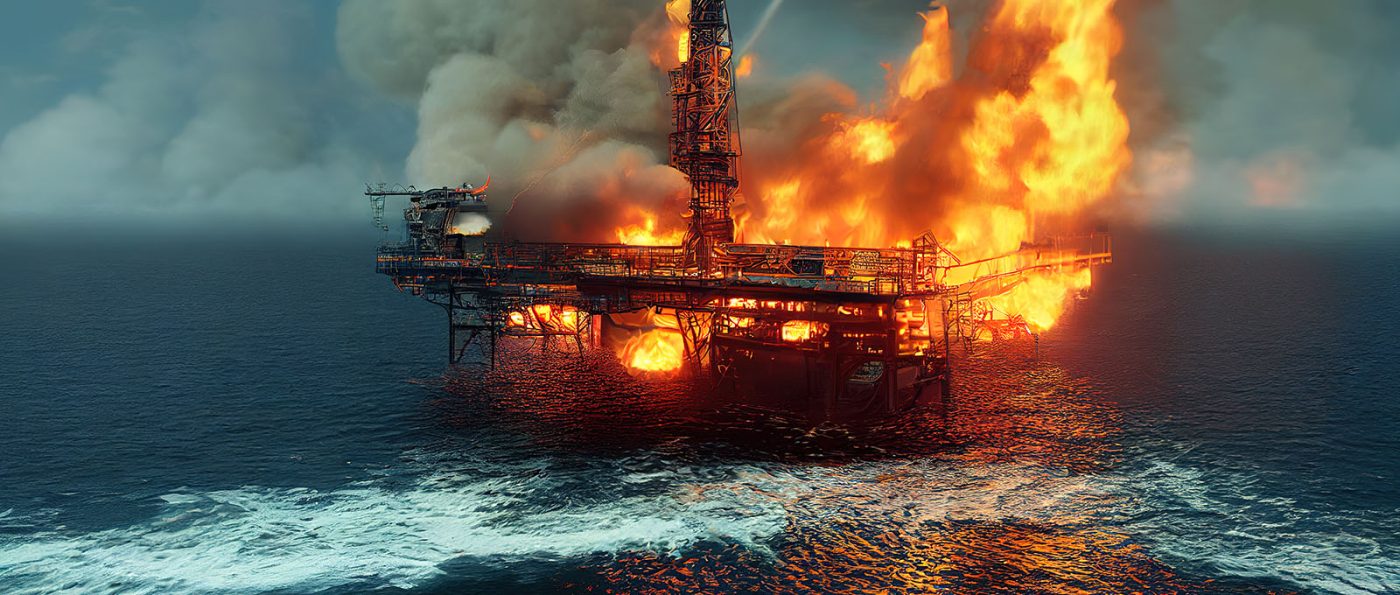Offshore accidents, which occur on oil rigs, platforms, and other maritime settings, can result in severe injuries, environmental damage, and financial losses. Understanding the common causes of these accidents is crucial for prevention and improving safety measures. This guide explores the typical causes of offshore accidents, their impact, and steps to enhance safety.
Mechanical Failures
Equipment Malfunction
Equipment malfunction is a leading cause of offshore accidents. This can include failures in drilling machinery, cranes, and safety devices.
Example: A malfunctioning blowout preventer fails to control a surge of oil and gas, leading to a blowout and subsequent fire on an oil rig.
Structural Failures
The structural integrity of offshore platforms and rigs is critical. Failures in structural components can lead to catastrophic incidents.
Example: A corroded support beam collapses, causing a section of the platform to fall into the sea, endangering workers and causing operational disruptions.
Human Error
Inadequate Training
Inadequate training of personnel can result in improper handling of equipment, poor decision-making, and unsafe practices.
Example: A worker without proper training operates a crane incorrectly, leading to a dropped load that injures nearby crew members.
Fatigue
Long working hours and demanding schedules can cause fatigue, impairing judgment and increasing the risk of accidents.
Example: An exhausted operator misinterprets a control panel warning, leading to an incorrect response that triggers a mechanical failure.
Environmental Factors
Severe Weather Conditions
Offshore environments are susceptible to severe weather, including storms, high winds, and rough seas, which can cause accidents.
Example: A sudden storm with high waves and strong winds topples equipment and washes workers overboard.
Marine Hazards
Marine hazards such as submerged rocks, icebergs, and marine life can pose risks to offshore operations.
Example: A drilling rig hits a submerged rock, causing a breach in the hull and an oil spill.
Operational Risks
Blowouts
A blowout occurs when uncontrolled pressure from an oil or gas well causes an eruption of hydrocarbons. This can result in fires, explosions, and spills.
Example: A blowout on an offshore drilling platform leads to a massive fire that endangers the crew and causes extensive environmental damage.
Collisions
Collisions between vessels or between vessels and offshore structures can cause significant damage and injuries.
Example: A supply vessel collides with an oil platform due to navigational errors, causing structural damage and a fuel leak.
Safety and Maintenance Issues
Poor Maintenance
Lack of regular maintenance can lead to equipment failures and unsafe working conditions.
Example: Failure to maintain lifeboats and emergency equipment results in malfunction during an evacuation, putting lives at risk.
Ignoring Safety Protocols
Neglecting established safety protocols and procedures can significantly increase the risk of accidents.
Example: Skipping routine safety drills and ignoring safety warnings lead to unpreparedness during an actual emergency.
Chemical and Fire Hazards
Hazardous Material Handling
Improper handling of hazardous materials, including chemicals and flammable substances, can lead to spills, fires, and explosions.
Example: Mishandling of flammable chemicals leads to a fire that spreads rapidly through the platform.
Gas Leaks
Gas leaks pose a significant risk due to the potential for explosions and toxic exposure.
Example: A gas leak in an enclosed area causes an explosion that results in multiple injuries and extensive damage to the rig.
Enhancing Safety Measures
Regular Training and Drills
Implementing regular training programs and emergency drills ensures that all personnel are prepared to handle emergencies and understand safety protocols.
Example: Conducting quarterly fire and evacuation drills helps ensure workers know how to respond effectively in case of an emergency.
Routine Maintenance and Inspections
Regular maintenance and thorough inspections of equipment and structures can prevent mechanical failures and extend the lifespan of critical components.
Example: Scheduled maintenance checks on drilling equipment help identify and rectify potential issues before they cause accidents.
Adherence to Safety Regulations
Strict adherence to safety regulations and protocols set by governing bodies can significantly reduce the risk of offshore accidents.
Example: Following Occupational Safety and Health Administration (OSHA) guidelines for offshore operations helps maintain high safety standards.
Use of Advanced Technology
Utilizing advanced technology, such as automated monitoring systems and remote-controlled equipment, can enhance safety and reduce human error.
Example: Installing automated shutoff systems that activate during pressure surges can prevent blowouts and other pressure-related incidents.
Frequently Asked Questions (FAQs)
What Should I Do If I’m Injured in an Offshore Accident?
Seek immediate medical attention, report the incident to your supervisor, document the accident, and consult with a lawyer experienced in offshore accident cases.
Can I File a Claim for an Offshore Accident?
Yes, if the accident resulted from negligence or unsafe working conditions, you may be eligible to file a claim for compensation. Consult with a lawyer to understand your rights and options.
What Compensation Can I Receive After an Offshore Accident?
Compensation can cover medical expenses, lost wages, pain and suffering, and other related costs. The amount depends on the specifics of the case and the extent of your injuries.
How Can Offshore Accidents Be Prevented?
Offshore accidents can be prevented through regular training, strict adherence to safety protocols, routine maintenance, and the use of advanced technology.
Who Is Liable for Offshore Accidents?
Liability for offshore accidents can fall on various parties, including employers, equipment manufacturers, and third-party contractors, depending on the cause of the accident.
For more information, visit legal.lostplanetscan.com or contact us at legal@lostplanetscan.com.
